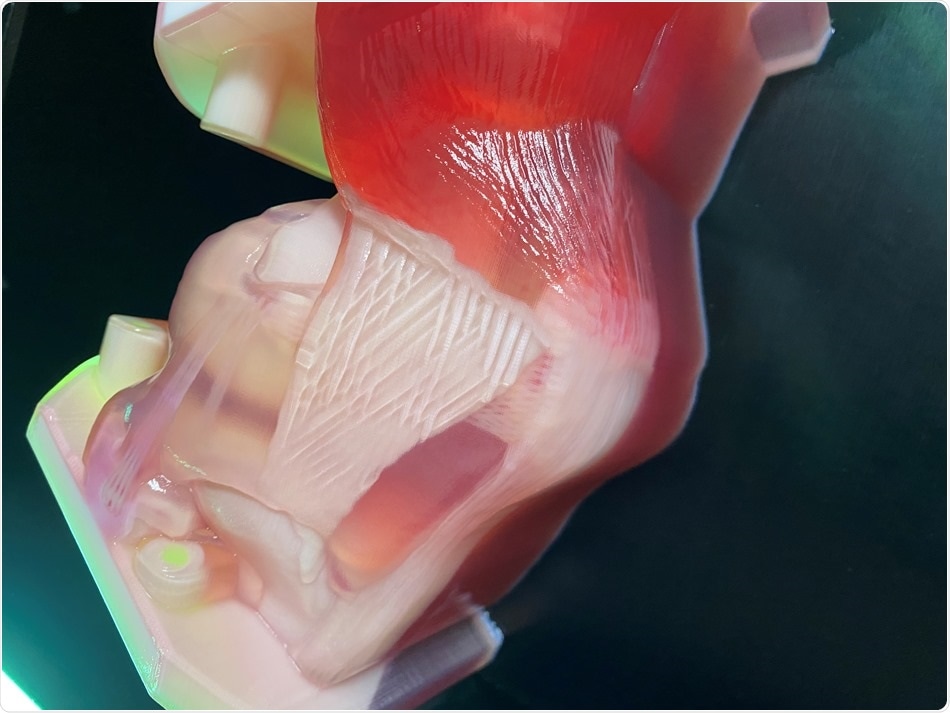Knee, hip and spinal surgery is the focus of a major new research project focusing on 3D technology developed in South Australia.

A Fusetec anatomical model used in brain surgery training. Photos courtesy Fusetec.
Under a new $2.4 million project, led by a $1 million Australian Government AusIndustry Global Innovation Linkage Program grant, Flinders University’s Medical Device Research Institute researchers will collaborate with a leading South Australian company Fusetec and DePuy Synthes, the orthopedics company of Johnson & Johnson Medical, to develop surgical training models for improved knee, hip and spine surgeries.
Fusetec chief executive Mark Roe says the world-leading 3D technology under development at the Adelaide-based company can simulate a variety of medical training devices, reproducing exacting density of all anatomical tissues and bone densities and reproducing organs or joints to an accuracy of 20 microns among a wide range of features.
“Our collaborative outcomes in this project will have a wide range of benefits to the healthcare sector, including the ability to upskill residents and surgeons in a risk-free environment from potentially harmful bacteria,” Mr Roe says.
“The project will also provide pathology on demand, meaning complex surgical training can now be rehearsed prior undertaking potentially life-threatening operations.”
Strategic Professor of Biomedical Engineering Mark Taylor says Flinders University is internationally recognized for its experimental and computational work on better orthopedic devices or orthopedic biomechanics.
“In particular, Flinders researchers have used technology to characteris tissues and modelling of joints, which will support Fusetec to develop the next generation of anatomical models,” Professor Taylor says.
Professor Karen Reynolds, director of the Medical Device Research Institute at Flinders, Tonsley, and Associate Professor John Costi, from the College of Science and Engineering, are also on the Flinders University research team.
Development of the new technology will be supported by advanced bio-model workshops led by DePuy Synthes, which will trial the Fusetec anatomical models as part of Johnson & Johnson’s surgeon training for use of their digital technologies.
Professor Taylor is also Flinders University lead in the Australian Research Council Training Centre for Medical Implant Technologies (ARC CMIT), which provides training for PhD students and early career researchers to engage with industry and clinical partners. The Centre specializes in personalized 3D printed orthopedic and maxillofacial implants.